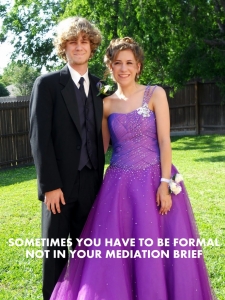New Rules Of Professional Conduct For California Lawyers
The California Supreme Court has approved new rules of professional conduct for attorneys licensed in California which go into effect November 1, 2018. These rules generally expand the existing settlement ethics rules. Violation of the rules can lead to a range of disciplinary actions, including disbarment. Here are the ones which affect people trying to settle a case.
Client Communication
Prior Rule 3-500 in a single sentence required lawyers to keep clients reasonably informed about significant developments. New Rule 1.4 is more detailed. Now there’s a two-way street: the lawyer must reasonably consult with the client about how to achieve the client’s goals. What’s more, the lawyer must also inform the client about what the lawyer cannot legally or ethically do even if it’s what the client expects.
Prior Rule 3-510 required lawyers to promptly communicate the specifics of a written settlement offer. A California lawyer need only pass along a spoken settlement offer if the lawyer deems the offer significant. New Rule 1.4.1 preserves this distinction.
In evaluating settlement offers or making other decisions about the representation, the Comment to new Rule 2.1 clarifies that a lawyer can initiate advice to a client on relevant, non-legal issues, such as moral, economic, social and political factors.
Diligence
Prior Rule 3-110 defined “competence” as including diligence. Now a separate Rule 1.3 prohibits a lawyer from “intentionally, repeatedly, recklessly or with gross negligence” failing to act with reasonable diligence.
New Rule 3.2 says “a lawyer shall not use means that have no substantial purpose other than to delay or prolong the proceeding or to cause needless expense.” Now an ethical rule may apply to needless court appearances and continuances and improperly postponed treatment.

New Rule 4.1 prohibits lawyers from knowingly making a false statement of material fact or law to a third person, i.e., someone who is not a client, such as an opposing party or witness. A lawyer cannot knowingly incorporate or affirm the truth of someone else’s false statement. A nondisclosure is the equivalent of a lie if the lawyer makes a partially true but misleading material statement or omission. On the other hand, the Comment to the Rule clarifies that there is no affirmative duty to inform an opponent of relevant facts. Representations about case value are not statements of fact or law.California Business and Professions Code sec. 6068(d) requires lawyers to represent clients with methods which are “consistent with truth.” A lawyer who intentionally deceives the court or any party can be charged with a misdemeanor. This statute remains in effect.Everybody Who Acts For the Firm
Prior Rule 3-110 included within the duty of competence a duty to properly supervise lawyers and non-attorneys or agents. New rules 5.1, 5.2, and 5.3 expand on that and provide for vicarious liability for a breach. A subordinate lawyer has an independent duty to follow the rules, but is not responsible for following instructions when there is an arguable question of professional duty.









